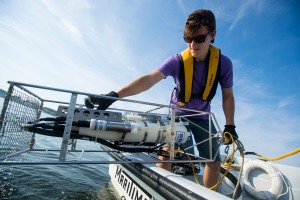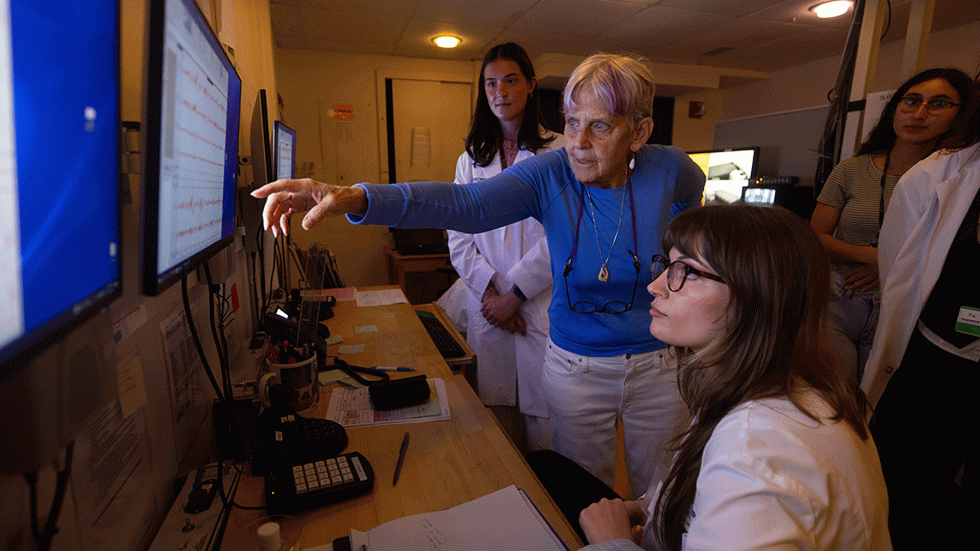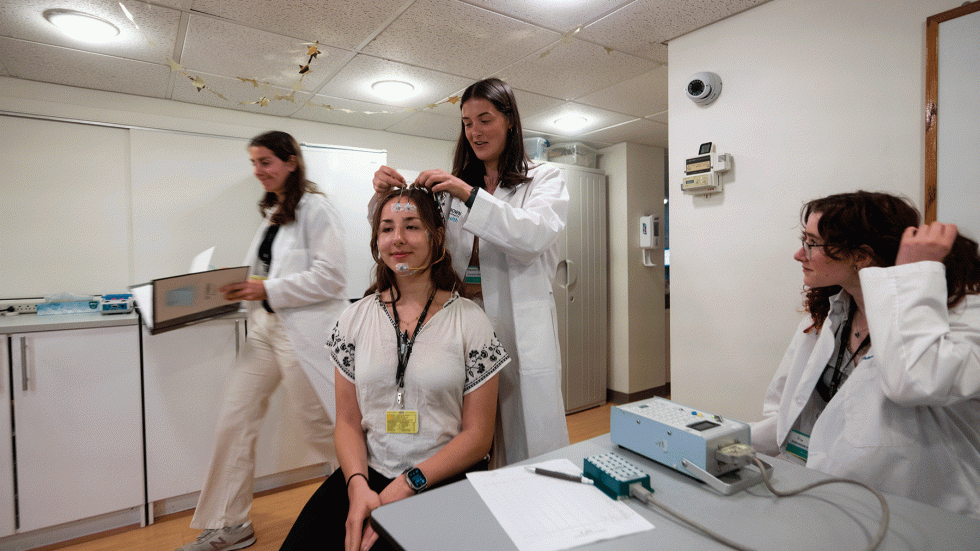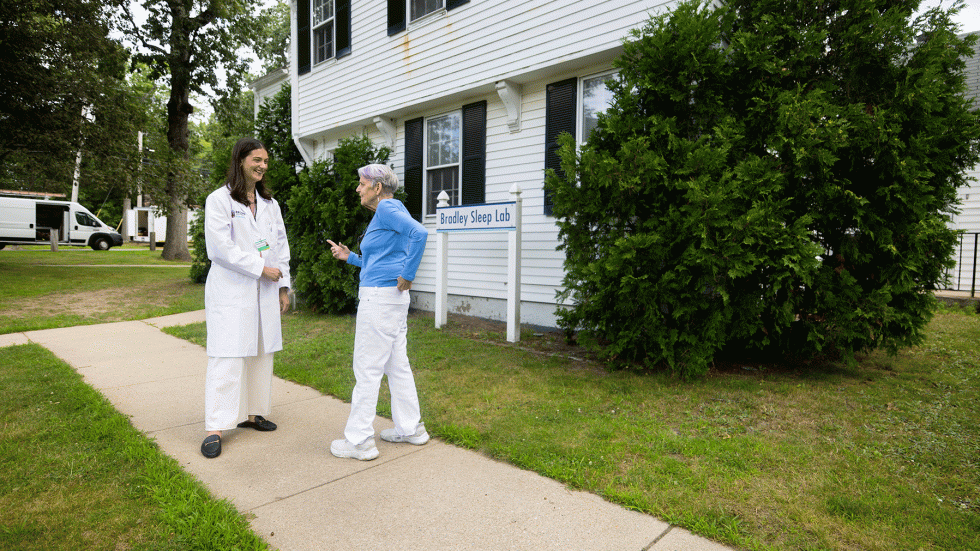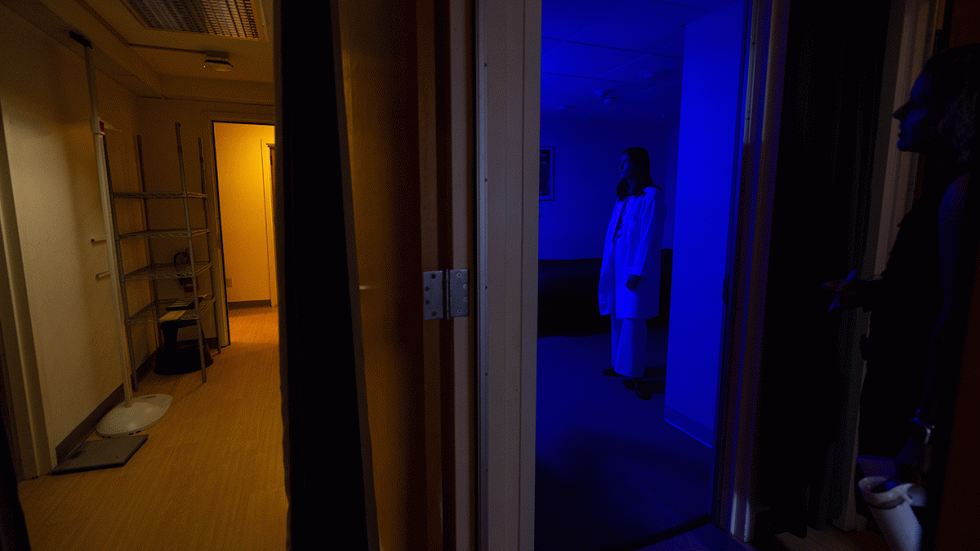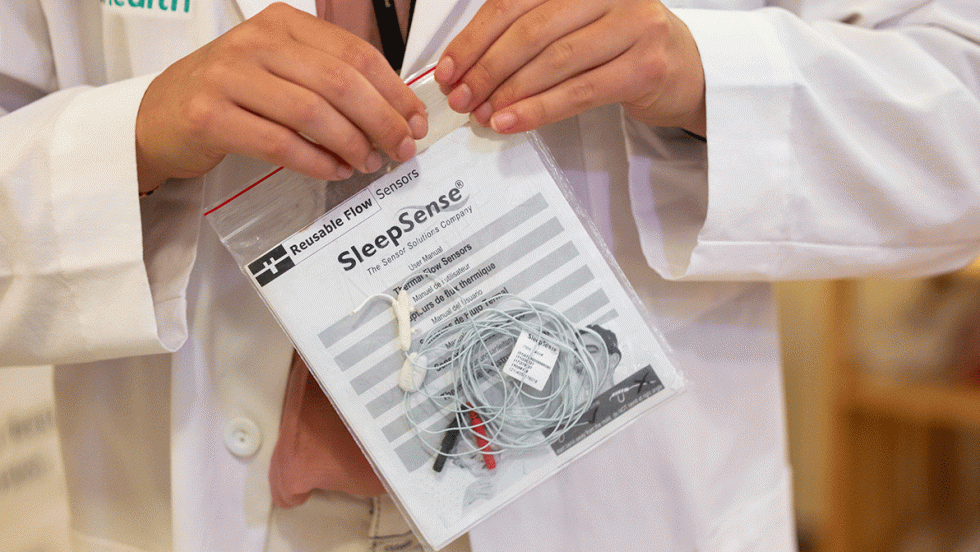PROVIDENCE, R.I. [Brown University] — Frances Moriniere has always been a morning person, so the early-bird shift has been a perfect fit for the rising Brown University junior during her sleep research lab summer internship.
Guided by the oversight of renowned sleep researcher Mary Carskadon, a Brown professor of psychiatry and human behavior, Moriniere is one of eight students selected to participate in this year’s Sleep Apprenticeship program at the Sleep for Science Research Lab of the Bradley Hospital and Brown University’s Warren Alpert Medical School.
Moriniere is assisting with several ongoing sleep studies at the lab. Five days a week, she reports to the lab at around 4 a.m. and spends the next five hours participating in research on how sleep affects different aspects of human health and cognition.
“While we fill out forms and take biological measurements, we also spend time making sure the study participants feel comfortable,” said Moriniere, who is concentrating in cognitive neuroscience at Brown. “There’s a lot of human interaction, which I really enjoy.”
The sleep research laboratory, which is located on the Butler Hospital campus and looks like a private residence, has four bedrooms, testing areas, a biospecimen lab and a computer cluster. As part of her training, Moriniere has practiced applying and removing the electrodes and sensors that measure brain waves through electroencephalography (EEG) as well as eye and chin movement. In addition to becoming familiar with basic lab procedures, the apprentices learn how to monitor breathing, heart rate and other functions during sleep, how to administer cognitive tests and record results, and how to identify the different sleep stages.
“It’s kind of crazy to be working alongside Brown professors like Mary Carskadon who are experts in their field, and to basically attend a private lecture on a topic where you can ask all the questions you want,” said Moriniere, who is working on an independent research project that she’ll present at the end of her apprenticeship about the effects of binge eating disorder on the gut microbiome and sleep. “It’s been a tremendous learning experience.”
Moriniere has also engaged as a research participant. She spent two different nights tucked into a twin-sized bed at the sleep lab with electrodes attached to her head. As part of one study, she was kept up until around midnight — way past her bedtime — and kept nodding off while completing cognitive tasks.
